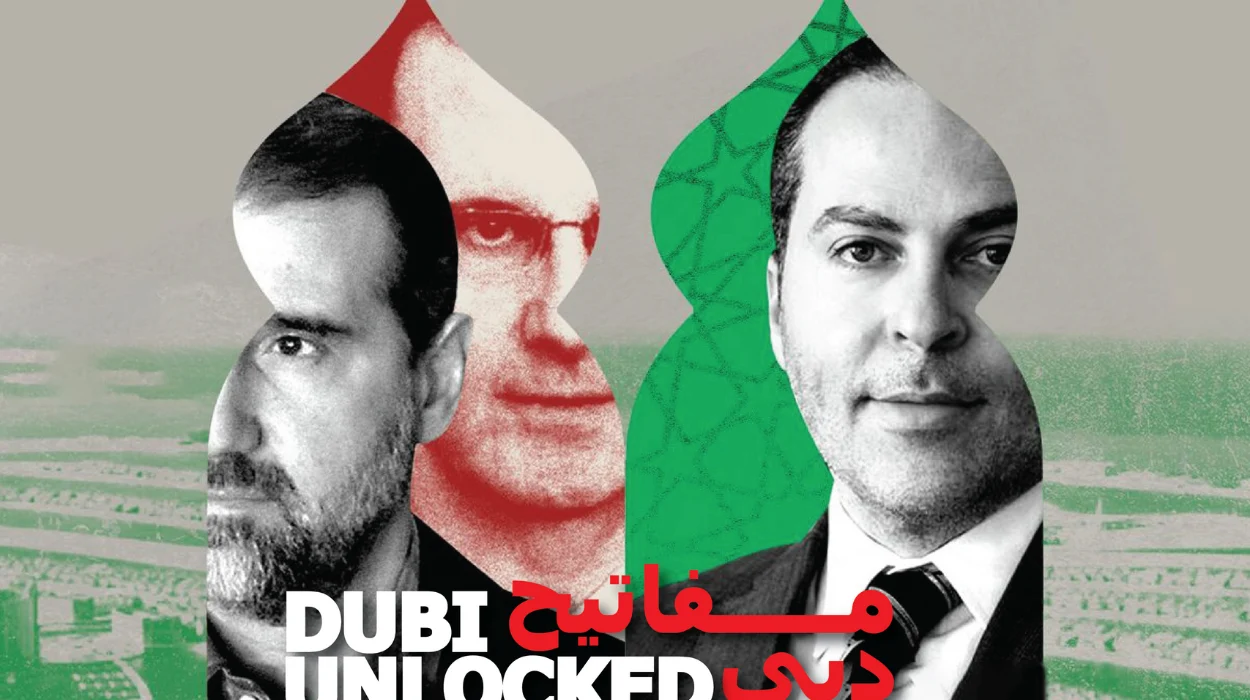Dubai’s real estate market has long been a magnet for illicit wealth, serving as a major hub for laundering vast sums of money from politically exposed persons (PEPs) and corrupt actors worldwide. In particular, the Syrian elite, tightly linked to the Assad regime, have funneled approximately $1.8 billion through luxury properties in Dubai to conceal and legitimize their wealth. This investigation exposes key individuals within this network, their backgrounds, alleged sources of illicit wealth, and the mechanisms by which they have exploited Dubai’s opaque regulatory environment to launder money through high-end real estate.
Dubai as a Hub for Illicit Wealth and Real Estate Laundering
Dubai’s rapid economic development, luxury property demand, and relatively lax financial transparency have cultivated a lucrative playground for money laundering. The emirate’s real estate market—with foreign ownership reaching over $160 billion—provides an attractive cover for illicit funds due to high-value transactions, shell companies, proxies, and limited disclosure requirements. Politically exposed persons and their affiliates exploit this system to convert illicit wealth into tangible assets, often using complex offshore structures that obscure true ownership.
Recent leaked documents and investigations reveal how billions in unlawfully obtained funds, often linked to Syria’s ruling elite and their business associates, have been funneled into Dubai’s luxury property sector. These transactions frequently involve proxy buyers and layering through multiple jurisdictions, complicating efforts to trace the origins of the money. Despite incremental regulatory reforms, significant gaps remain, allowing insiders and oligarchs safe harbor for their wealth.
Money Laundering Mechanisms in Dubai Real Estate
The methods employed to launder money through Dubai real estate typically involve the use of shell companies registered in offshore jurisdictions, proxy owners who shield the identity of the real beneficiaries, and a series of opaque transactions. Luxury villas, penthouses, and commercial properties purchased with illicit funds can then be rented or resold, providing a façade of legitimacy. Real estate’s inherent complexity and high valuations make it ideal for integrating corrupt funds with relative ease.
Dubai’s regulatory environment has historically favored privacy and minimal interference, allowing politically connected individuals to exploit loopholes. Although regulations such as Real Estate Activity Report (REAR) rules now require reporting of transactions above a certain threshold, enforcement remains inconsistent. This lack of transparency, combined with the emirate’s status as a global financial center and tax haven, fosters an enabling environment particularly attractive to Syria’s elite circle.
Individual Profiles of Alleged Real Estate Money Launderers in Dubai
Rami Makhlouf
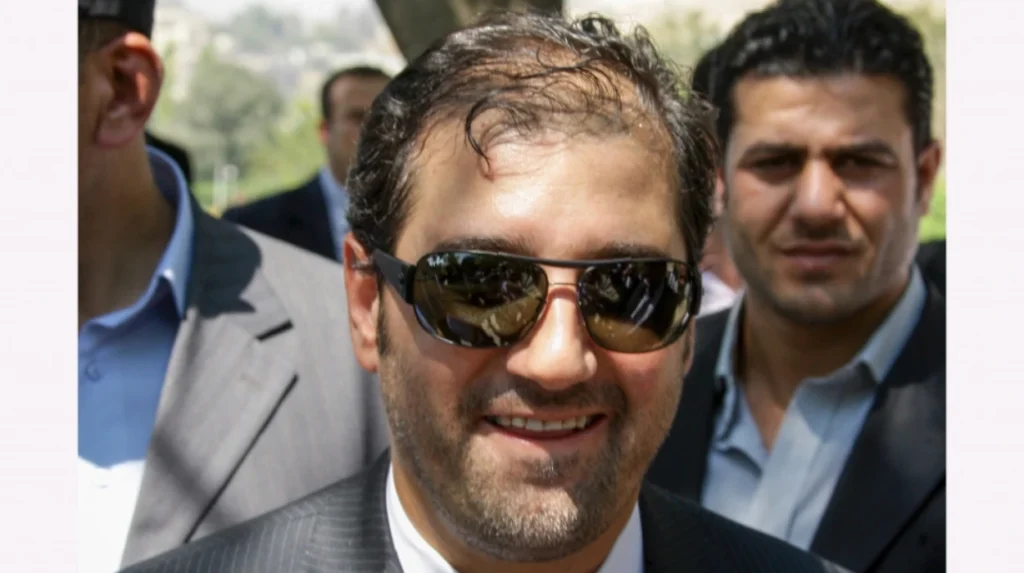
Rami Makhlouf, a cousin of Syrian President Bashar al-Assad, is one of the most prominent businessmen in Syria with vast wealth deriving from telecommunications, construction, and retail monopolies. Despite falling out of favor politically in recent years, Makhlouf maintains extensive financial interests, notably in Dubai real estate.
He reportedly owns multiple luxury villas on Palm Jumeirah, Dubai’s iconic man-made island, including an estimated $8 million villa covering nearly 1,244 square meters. Additional assets include high-value residential apartments within exclusive buildings such as AL DABAS and Abu Keibal, valued at over $2.5 million combined. These properties serve as vehicles to camouflage his fortune accumulated largely through monopolistic control of Syria’s telecom sector and government contracts.
Makhlouf’s ownership structures are reportedly layered through offshore companies and proxies, making it difficult to trace direct connections to him, despite international sanctions targeting him for his role as a regime financier.
Ihab Makhlouf
Ihab Makhlouf, Rami’s brother, similarly holds real estate assets estimated to be worth around $8 million in luxurious villas on Palm Jumeirah. His wealth sources mirror those of his family, with deep involvement in Syria’s state-linked economic sectors.
Ihab’s property acquisitions are believed to be facilitated through opaque corporate vehicles and intermediaries, further obscuring the origins of his funds. His ability to maintain such holdings in Dubai despite western sanctions underscores the challenges in holding regime insiders accountable.
Samer Foz
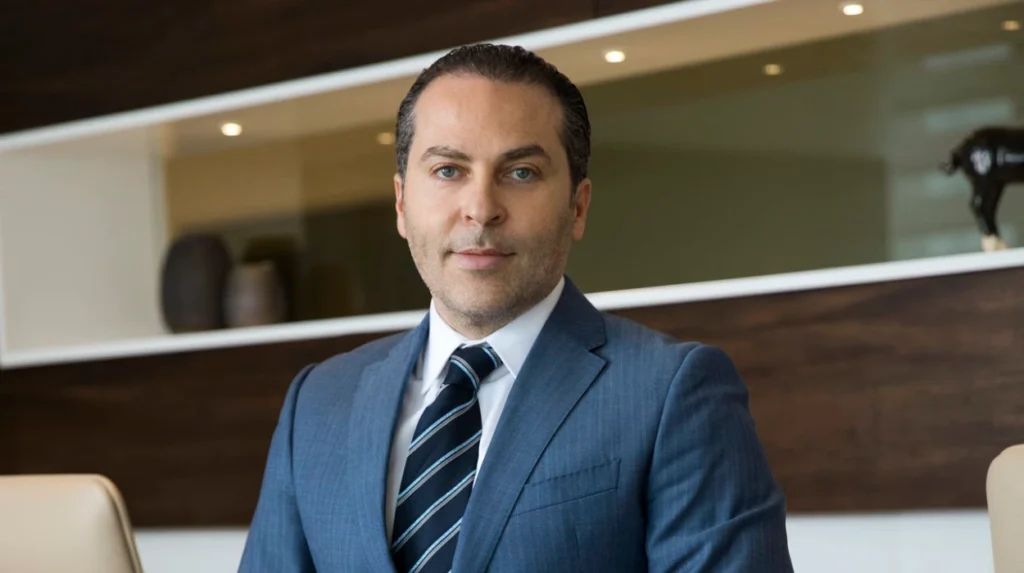
Samer Foz is a Syrian business magnate sanctioned by the United States for profiting from the Syrian conflict through industries spanning construction, flour mills, and shipping. He has used Dubai real estate to legitimize his expanding wealth, including ownership of multiple units in the Platinum Tower, located in Al Thanyah Fifth—a prestigious development.
Foz’s properties in Dubai are valued at several million dollars, including commercial lands and residential units. His investments are diversified and frequently acquired through Lebanese and other offshore entities, which conceal his direct control. His activities highlight the cross-border complexity of the Assad regime’s financial ecosystem.
Amer Foz
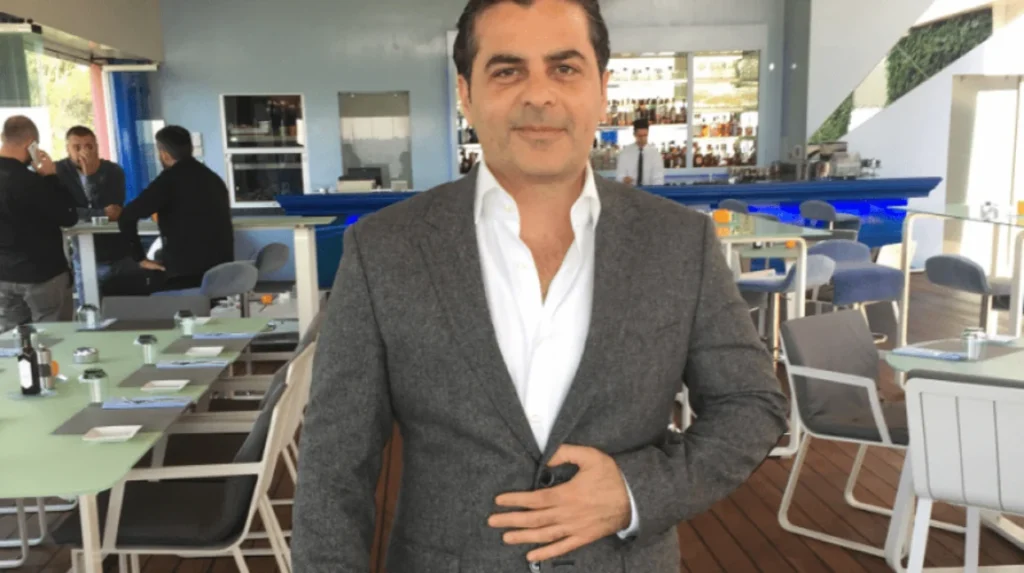
Amer Foz, brother to Samer, holds multiple apartment units and other properties across Dubai. He is also under European sanctions for his involvement in pro-regime economic activities. Amer’s portfolio in Dubai is linked to his broader business empire in Syria, which includes trading and investments enabled by the regime’s patronage.
His property transactions leverage shell companies to mask ownership, allowing continued accumulation of assets despite sanction regimes targeting Syria’s elite financiers.
Rania al-Dabas
Rania al-Dabas is a less publicly known but influential individual connected to the regime’s financial networks, with real estate holdings primarily in the DAMAC Towers, Business Bay. These luxury high-rise residences and commercial spaces serve as further safe havens for illicit wealth.
Al-Dabas’s properties are often purchased through offshore structures that hinder transparency, making her a key player in the broader laundering scheme within Dubai’s luxury property market.
Muhammad Bashar Kiwan
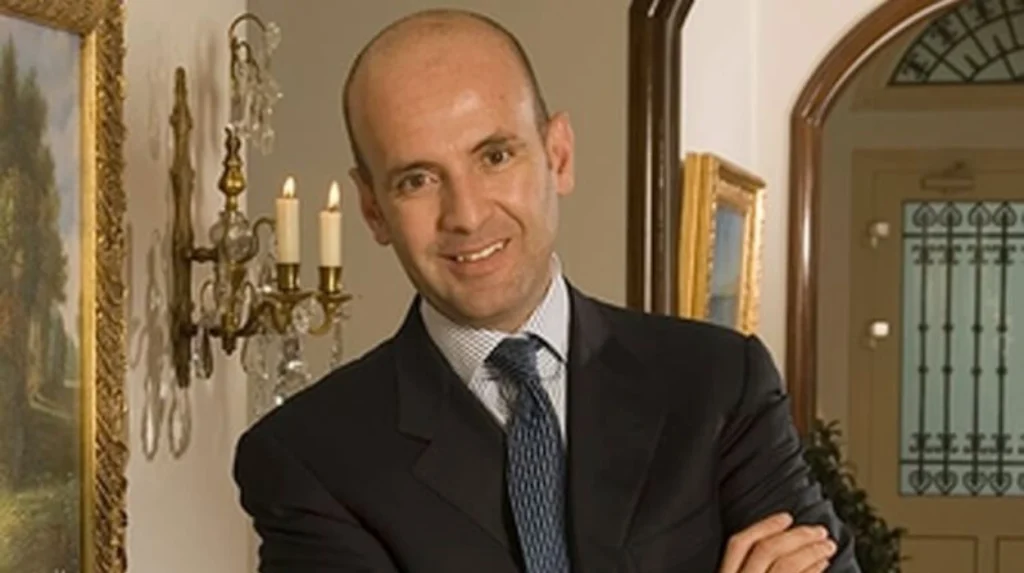
Muhammad Bashar Kiwan is a media mogul with ties to the Syrian regime, reportedly using offshore-linked properties in Dubai to hide substantial funds. His extensive network of offshore companies facilitates the laundering of wealth obtained through regime-affiliated media and business ventures.
Kiwan’s real estate holdings in Dubai are emblematic of the sophisticated financial engineering employed to integrate illicit proceeds and shield assets from scrutiny.
Rifaat al-Assad
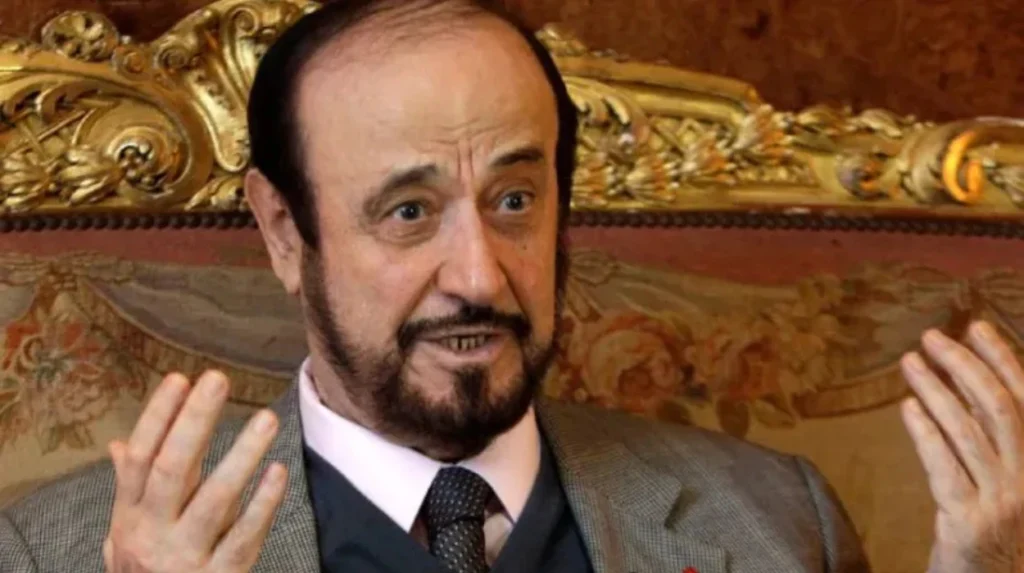
Rifaat al-Assad, uncle to President Bashar al-Assad, has longstanding wealth accumulated through both political influence and business. He owns upscale Dubai properties that are part of his broader portfolio used to secure family fortune outside Syria.
His real estate holdings in refined neighborhoods leverage corporate vehicles and proxy buyers, making it difficult for regulators to trace the direct ownership or source funds.
Ghassan Aboud
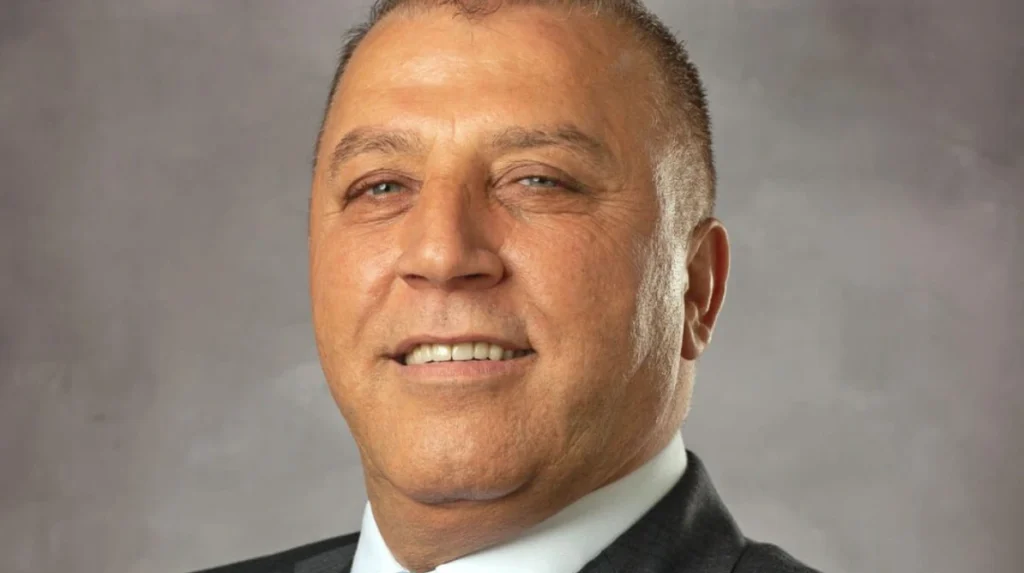
Ghassan Aboud, a businessman with diversified holdings across Dubai, owns multiple properties linked to the Syrian elite network. His wealth stems from trade and commercial enterprises but is often interwoven with regime patronage.
Aboud’s use of complex ownership structures exemplifies the modus operandi of illicit wealth concealment in Dubai’s property market.
Saleh Tabakh

Saleh Tabakh is associated with various real estate developments in Dubai. His involvement in buying and selling high-value properties is aligned with facilitating the movement and legitimization of regime-linked wealth.
Tabakh’s operations preferentially utilize offshore entities and proxies to conduct real estate transactions, further complicating financial crime investigations.
Dubai’s Regulatory Environment and Its Role
Dubai’s allure for illicit wealth lies in its permissive regulatory framework, which historically prioritized investment attraction over financial transparency. While the UAE has implemented anti-money laundering reforms, including mandatory reporting of property transactions exceeding AED 55,000, enforcement gaps persist.
The emirate’s financial secrecy, absence of beneficial ownership registries accessible to the public, and inability to fully comply with international transparency standards create systemic vulnerabilities. This environment allows politically connected Syrian elites and other corrupt actors to inject laundered funds into Dubai’s luxury real estate market with limited risk of detection or sanctions enforcement.
Dubai’s role as a regional business hub, combined with an accommodating banking and legal system, enables these actors to evade international sanctions and launder billions through real estate investments, consolidating their wealth while obscuring its illicit origin.
Implications for Syria, Governance, and Global Finance
The flow of $1.8 billion through Dubai real estate by Assad’s close associates exacerbates institutional corruption and governance challenges in Syria. By funneling illicit wealth abroad, these individuals undermine efforts towards reconstruction, fuel economic inequality, and prolong conflict dynamics.
This money laundering network also distorts global financial integrity, enabling sanctioned actors to exploit weak regulatory environments, evade accountability, and perpetuate state-corporate crime. It underlines the critical need for robust international cooperation and regulatory reforms to disrupt these illicit financial flows.
Toward Accountability and Transparency
Dubai remains a pivotal node for laundering illicit wealth through real estate, with Syrian elite figures exploiting regulatory weaknesses to secure and legitimize their fortunes. The $1.8 billion linked to Assad’s allies reveals the scale and sophistication of these operations.
Effective measures must include enhanced beneficial ownership transparency, stringent enforcement of anti-money laundering regulations, greater international sanctions coordination, and independent audits of real estate transactions. Only through systemic reform can Dubai’s real estate sector shed its role as a conduit for elite corruption and international financial crime.


